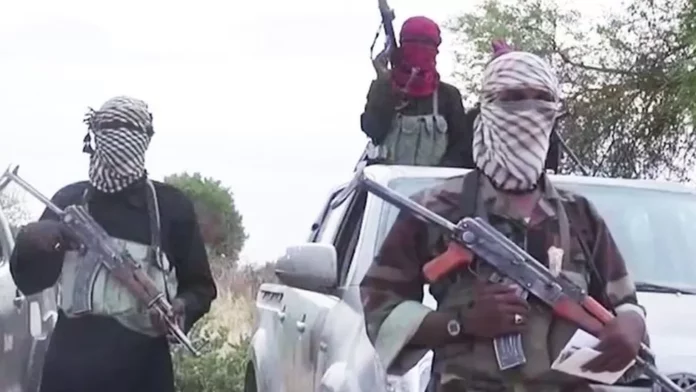Militant Islamist group Boko Haram has once again unleashed violence in Nigeria’s Yobe state, leading to the tragic deaths of 20 mourners who were returning from the burial of victims of a prior Boko Haram attack in the northeastern region. These mourners lost their lives when their vehicle triggered an explosive device planted by the insurgents in Yobe state.
Furthermore, on Monday, Boko Haram carried out a deadly raid on Gurokayeya village, resulting in the killing of 17 people. These attacks were orchestrated because the villagers refused to pay a so-called harvest tax, as reported by the police. Boko Haram has a history of extorting payments from local residents in northeastern Nigeria to fund their operations and exert control over communities.
“This is one of the most horrific attacks by Boko Haram in recent times. For a burial group to be attacked shortly after the loss of their loved ones is beyond horrific,” resident Idris Geidam told the Associated Press news agency.
Yobe police spokesman Dungus Abdulkarim said that 10 members of the burial group died on the spot while another 10 died at a health center where they were rushed to for treatment.
The incident occurred on Tuesday – a day after the deadly raid on Gurokayeya village.
The attacks are the first major assault that Boko Haram has waged in Yobe in more than a year.
State authorities said they suspected that the militants had arrived from neighboring Borno state, where Boko Haram has carried out several attacks against civilians this year.
Much of Borno, the birthplace of Boko Haram, is still considered too dangerous to travel by road.
The group launched its insurgency in 2009, with aid agencies reporting that more than two million people have been displaced in the conflict.
The militant group has also extended its reach into neighboring Niger, Chad, and Cameroon, with government forces failing to defeat the group.
Boko Haram means “Western education is forbidden,” and it has repeatedly targeted secular schools as part of its attempts to establish its version of Islamic rule in the region.
The group gained notoriety internationally when it kidnapped more than 200 schoolgirls from the northeastern town of Chibok in 2014.







